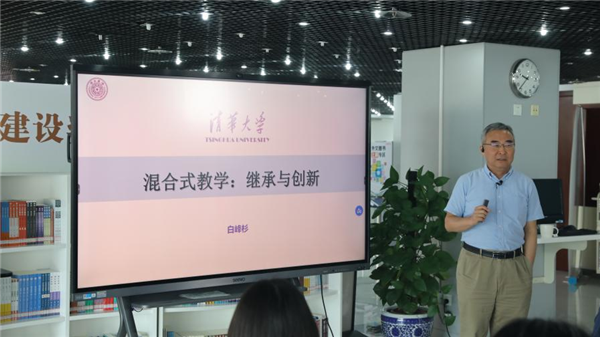 To enhance the quality of learning resources design and construction for online courses and optimise their teaching effects, the Open University of China (OUC) recently hosted its inaugural workshop on online course design, themed "How to Become an Expert in Online Course Design? — Secrets to Designing Massive Online Courses."
To enhance the quality of learning resources design and construction for online courses and optimise their teaching effects, the Open University of China (OUC) recently hosted its inaugural workshop on online course design, themed "How to Become an Expert in Online Course Design? — Secrets to Designing Massive Online Courses."
The workshop was co-organised by the OUC's Learning Resources Department and Ubiquitous Age, involving over 60 teachers and course producers from across the university.

Bai Fengshan presented on "Hybrid Teaching: Inheritance and Innovation."
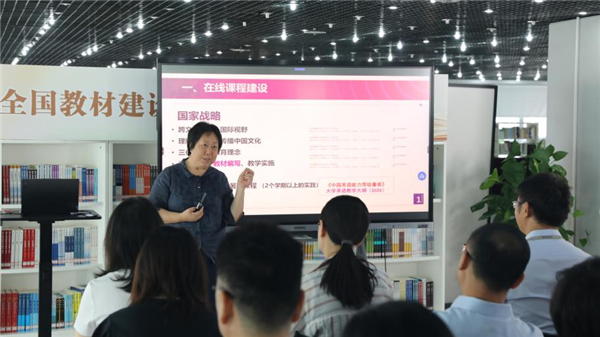
Yang Fang shared insights on "Design, Development, and Operation of the Online Course 'Listening and Speaking in Everyday English.'"
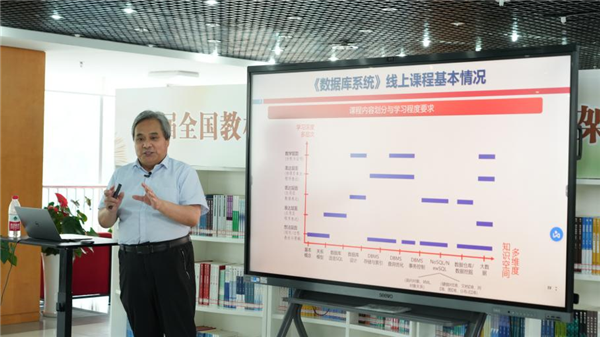
Zhan Dechen discussed "Experiences in Developing the Online Course 'Database Systems.'"
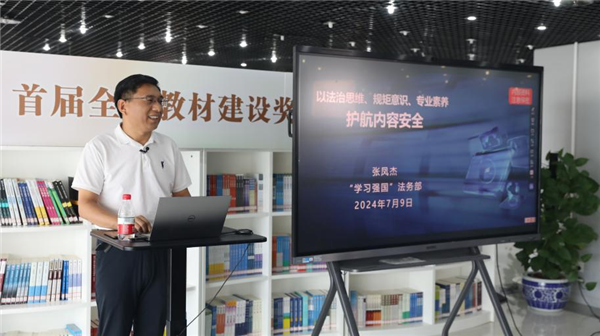
Zhang Fengjie presented on "Safeguarding Content Security with Legal Thinking, Discipline Awareness, and Professionalism."
Leaders of national first-class undergraduate courses and authoritative experts from Tsinghua University, Harbin Institute of Technology, and the national learning platform "Xuexi Qiangguo" were invited to share their invaluable experiences in creating high-quality online open courses, drawing from their own course development cases. The four speakers, all with extensive and successful practical experience, not only introduced their course production insights and techniques but also demonstrated the fun and allure of high-quality online course design through typical case studies and interactive presentations.
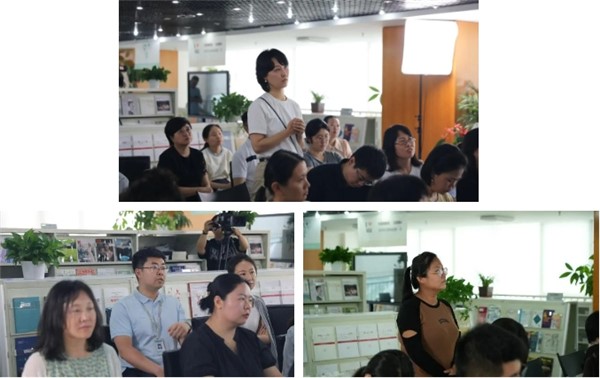
Participants engaged in lively interaction with the guests on-site.
The participating teachers actively posed questions about practical issues encountered in their work, including education and teaching, online course design, and learning resource production, engaging in in-depth exchanges and discussions with the guests.
The teachers actively participated in the event and expressed that the workshop's content was highly relevant to their actual work. It not only introduced new perspectives, technologies, methods, and ideas for online course design but also provided valuable references and motivational support for enhancing their capabilities in digital learning resource construction. This is conducive to applying their learnings to teaching practice, achieving dual improvements in professional and digital competencies, and contributing to the university's core competitiveness in learning resources.
Written by Learning Resources Department
Photos by Ubiquitous Age